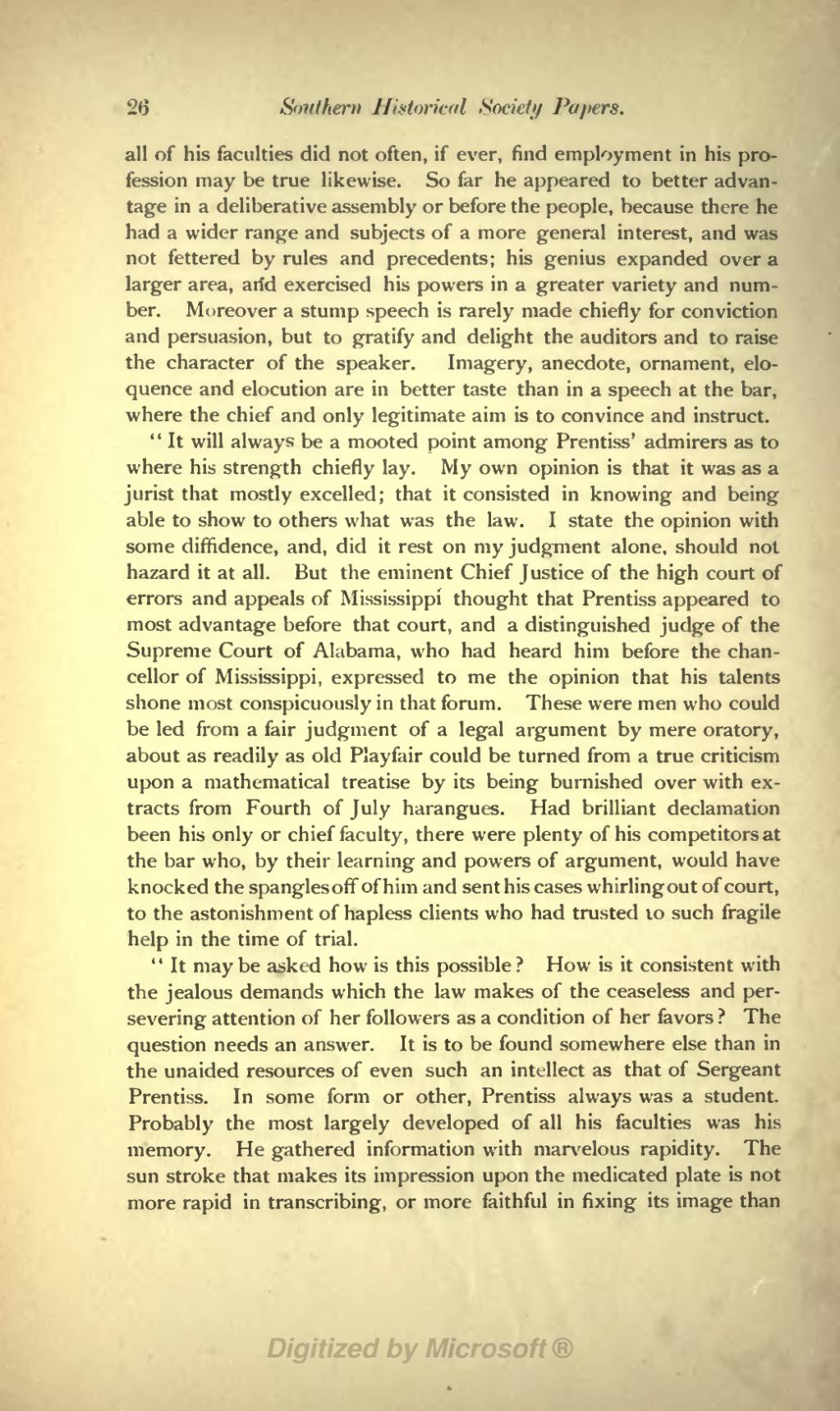26 Soill /, TII llixtnririil Sorii'fi/
all of his faculties did not often, if ever, find employment in his pro- fession may be true likewise. So far he appeared to better advan- tage in a deliberative assembly or before the people, because there he had a wider range and subjects of a more general interest, and was not fettered by rules and precedents; his genius expanded over a larger area, arfd exercised his powers in a greater variety and num- ber. Moreover a stump speech is rarely made chiefly for conviction and persuasion, but to gratify and delight the auditors and to raise the character of the speaker. Imagery, anecdote, ornament, elo- quence and elocution are in better taste than in a speech at the bar, where the chief and only legitimate aim is to convince and instruct.
" It will always be a mooted point among Prentiss' admirers as to where his strength chiefly lay. My own opinion is that it was as a jurist that mostly excelled; that it consisted in knowing and being able to show to others what was the law. I state the opinion with some diffidence, and, did it rest on my judgment alone, should not hazard it at all. But the eminent Chief Justice of the high court of errors and appeals of Mississippi thought that Prentiss appeared to most advantage before that court, and a distinguished judge of the Supreme Court of Alabama, who had heard him before the chan- cellor of Mississippi, expressed to me the opinion that his talents shone most conspicuously in that forum. These were men who could be led from a fair judgment of a legal argument by mere oratory, about as readily as old Playfair could be turned from a true criticism upon a mathematical treatise by its being burnished over with ex- tracts from Fourth of July harangues. Had brilliant declamation been his only or chief faculty, there were plenty of his competitors at the bar who, by their learning and powers of argument, would have knocked the spangles off of him and sent his cases whirling out of court, to the astonishment of hapless clients who had trusted 10 such fragile help in the time of trial.
" It maybe a$ked how is this possible? How is it consistent with the jealous demands which the law makes of the ceaseless and per- severing attention of her followers as a condition of her favors ? The question needs an answer. It is to be found somewhere else than in the unaided resources of even such an intellect as that of Sergeant Prentiss. In some form or other, Prentiss always was a student. Probably the most largely developed of all his faculties was his memory. He gathered information with marvelous rapidity. The sun stroke that makes its impression upon the medicated plate is not more rapid in transcribing, or more faithful in fixing its image than
